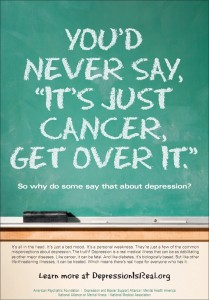My first year at UofT was rough. It was my first time away from home. I was truly independent and on my own. I remember thinking the freedom would be liberating. But it wasn’t. Not for me, anyways. Adjusting to university life took me longer than I had expected. The large class sizes, the intimidating professors, the competitive environment. I was mentally and emotionally exhausted when the year came to a close. The pressure completely consumed me and I remember feeling broken.
I did a bit of soul-searching during the summer between my first and second year. I remember asking myself some tough questions. Was UofT for me? Was
any university for me? Was I smart enough? Would I make it? I was scared, terrified actually, to reach out to someone. Wouldn’t that make me weak? Everyone else seemed to be coping just fine. Why was I the only one who was struggling?
It took me a while, but I did finally ask for guidance. I approached friends, family, and my college registrar to address the academic and personal issues that I was fighting against. The sense of relief was overwhelming and it helped me get my life back on the right track. Looking back, I’ve realized that I would have been happier in first year had I admitted to myself and others that I was mentally drained.
Why do we find it difficult or embarrassing to address mental pressures? Society promotes physical health. Yet, topics of mental health and emotional stability seem to have an aura of prejudice and intolerance around them. I suppose we are all afraid of being “crazy.” Interestingly enough, however, we are more likely to experience mental illness than physical illness during our lifetimes.
On Friday, I attended a conference at Victoria College titled “Minding Our Minds: Mental Health in University.” The conference began with two panel discussions, titled “The Crisis of Mental Illness on Campus – Why Diagnoses are on the Rise” and “University Programmes and Best Practice in Preventative and Responsive Models.” The talks addressed numerous mental illnesses, including depression, a disorder common amongst university and college students.

A closing address was delivered by Dr. David Goldbloom, a Professor of Psychiatry at the University of Toronto and the Chair of the Canadian Mental Health Association. Dr. Goldman spoke on the stigma and discrimination surrounding the topic of mental health, suggesting that it is an unnecessary obstacle for patients suffering from mental diseases and disorders.

The talks made me think about the way we view and project mental struggles or illness. I’ve come to realize that mental distress can be just as torturous as physical pain, if not more so. And contrary to what some believe, “get over it” is not very helpful advice. If you feel stressed or overwhelmed, don’t hesitate to ask for help. Your friends, family, college registrar, and Counselling and Psychological Services (
http://www.caps.utoronto.ca/main.htm) at UofT will be able to pull you out of a dreadful situation and give you new perspective. And we can all use that from time to time.
Asking for help won’t make you “crazy” or “weak.” It’ll probably make you saner and stronger than you’ve ever been.
Till next time,
Ishita
 A closing address was delivered by Dr. David Goldbloom, a Professor of Psychiatry at the University of Toronto and the Chair of the Canadian Mental Health Association. Dr. Goldman spoke on the stigma and discrimination surrounding the topic of mental health, suggesting that it is an unnecessary obstacle for patients suffering from mental diseases and disorders.
A closing address was delivered by Dr. David Goldbloom, a Professor of Psychiatry at the University of Toronto and the Chair of the Canadian Mental Health Association. Dr. Goldman spoke on the stigma and discrimination surrounding the topic of mental health, suggesting that it is an unnecessary obstacle for patients suffering from mental diseases and disorders.
 The talks made me think about the way we view and project mental struggles or illness. I’ve come to realize that mental distress can be just as torturous as physical pain, if not more so. And contrary to what some believe, “get over it” is not very helpful advice. If you feel stressed or overwhelmed, don’t hesitate to ask for help. Your friends, family, college registrar, and Counselling and Psychological Services (http://www.caps.utoronto.ca/main.htm) at UofT will be able to pull you out of a dreadful situation and give you new perspective. And we can all use that from time to time.
Asking for help won’t make you “crazy” or “weak.” It’ll probably make you saner and stronger than you’ve ever been.
Till next time,
Ishita
The talks made me think about the way we view and project mental struggles or illness. I’ve come to realize that mental distress can be just as torturous as physical pain, if not more so. And contrary to what some believe, “get over it” is not very helpful advice. If you feel stressed or overwhelmed, don’t hesitate to ask for help. Your friends, family, college registrar, and Counselling and Psychological Services (http://www.caps.utoronto.ca/main.htm) at UofT will be able to pull you out of a dreadful situation and give you new perspective. And we can all use that from time to time.
Asking for help won’t make you “crazy” or “weak.” It’ll probably make you saner and stronger than you’ve ever been.
Till next time,
Ishita
0 comments on “Minding Our Minds”